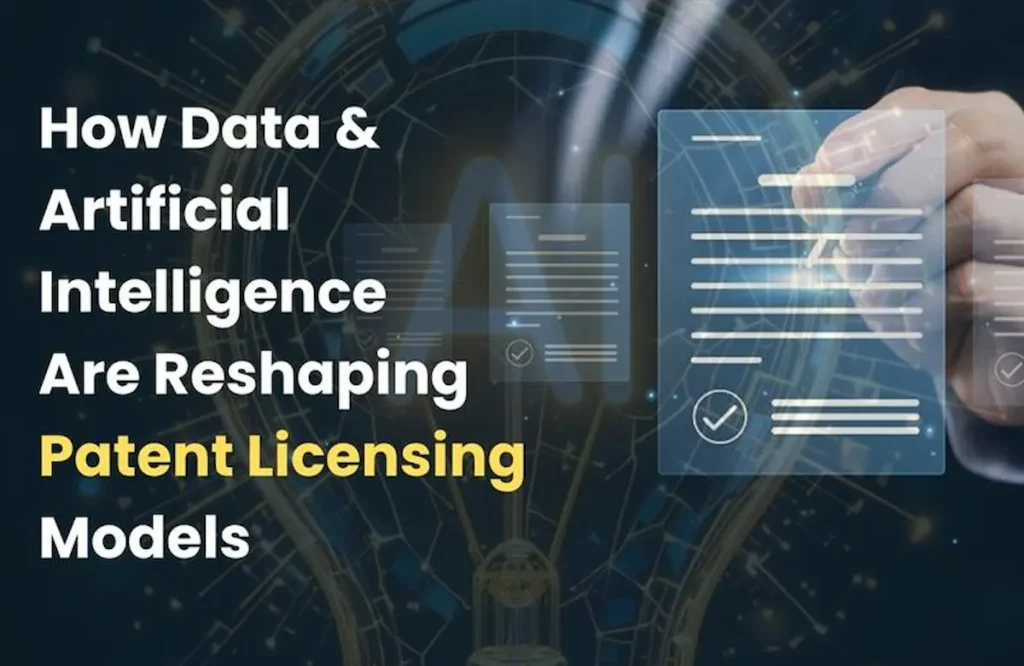
Patent licensing is one of the most effective ways to monetize intellectual property, and for anyone looking to take their patent monetization strategy to the next level, understanding the role of data and AI in the future of Patent Licensing is essential. In today’s world, where data-driven decisions shape almost every business move, combining advanced analytics and AI in Patent Licensing can completely change how companies identify opportunities, negotiate deals, and maximize value. So, what exactly is the role of data and AI in patent licensing, and why is it becoming so important? Keep reading to find out how these technologies are reshaping the future of IP monetization.
How Are Data and AI Transforming the Future of Patent Licensing?
To really understand the important role of data and AI in patent licensing, we first need to see how they’re actually used in the process. The truth is, data and artificial intelligence are completely changing how companies find, manage, and profit from their patents. In the past, patent licensing depended on long hours of manual research, expert opinions, and drawn-out negotiations. Now, with AI and big data analytics, businesses can make faster and smarter licensing decisions backed by real information instead of guesswork.
- AI tools can scan millions of patents in seconds to figure out which ones have the highest market potential or are most likely to attract licensees.
- They can even dig through databases, company filings, and product info to spot possible partners — or flag potential patent infringements.
- On the other hand, data analytics helps companies study past deals, royalty rates, and market trends to estimate fair values and predict revenue.
- Machine learning can even forecast which technologies are becoming more popular and which patents might increase in value over time.
In short, AI makes patent licensing more data-driven, predictive, strategic, and effective. It helps companies reduce risk, find new opportunities, and get the most out of their intellectual property. Instead of just sitting on patents, businesses can now turn them into active, revenue-generating assets — all thanks to the power of data and AI.
What Is the Future of Data and AI in Patent Licensing?
When we look at the future of data and AI in patent licensing, things are only going to get smarter, faster, and more connected. In the coming years, AI tools will be even better at predicting which patents will grow in value, helping companies focus on the most profitable ones. We’ll also start seeing AI-powered matchmaking platforms that automatically link patent owners with potential licensees around the world — making deals happen quicker and cutting down negotiation time. With the rise of blockchain and smart contracts, royalty payments could soon be handled automatically, making the process faster and more transparent. And as AI keeps creating new inventions, we’ll see new rules and frameworks develop around ownership, data rights, and licensing AI-generated IP. Simply put, the future of patent licensing will be data-driven, AI-powered, and built for a global transformation, innovation-focused globally.
Conclusion
The integration of data and AI in patent licensing is reshaping how businesses manage and monetize their intellectual property. What was once a slow, manual process is now becoming faster, smarter, and more data-driven. With AI-powered insights and data, predictive analytics, and automated systems, companies can make better decisions, find the right partners, and maximize the value of their patents. As technology continues to evolve, patent licensing will move toward a future that’s more transparent, efficient, and globally connected — powered by innovation, guided by data, and driven by artificial intelligence.









